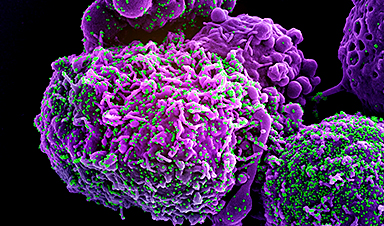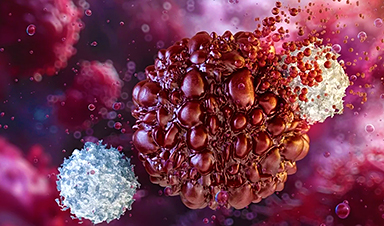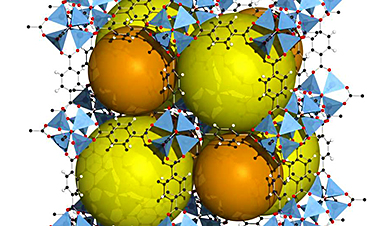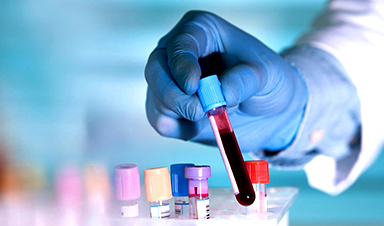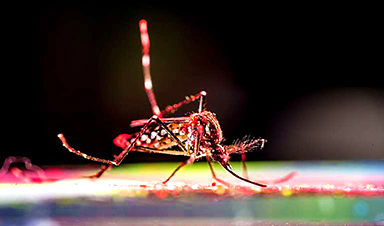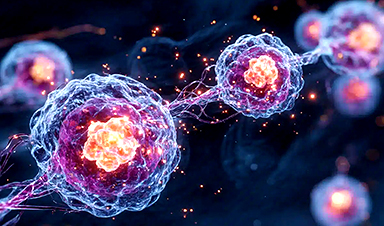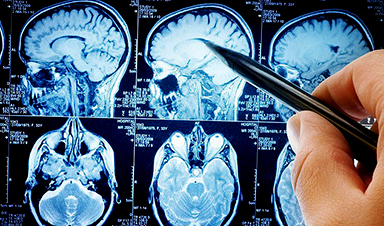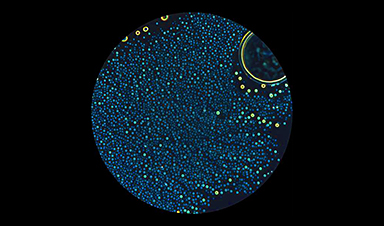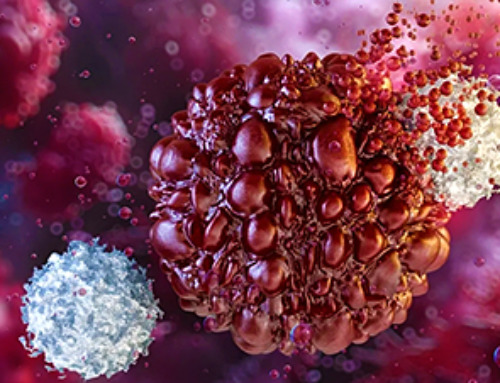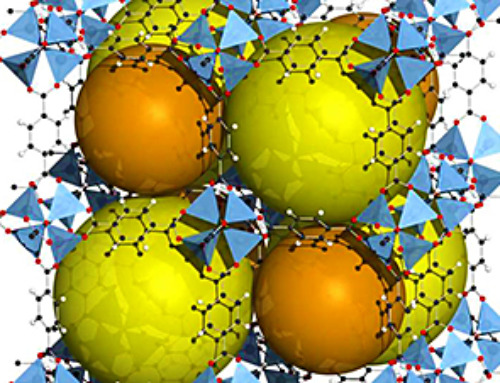Researchers have discovered that SARS-CoV-2 manipulates the human immune system by forcing cells to produce non-functional proteins, hindering the body's antiviral defenses.
This groundbreaking study by teams from prestigious Brazilian universities highlights potential targets for new COVID-19 treatments, emphasizing the importance of restoring normal RNA processing in infected cells.
SARS-CoV-2's Immune Evasion Strategies
To evade the human host's immune response, SARS-CoV-2, the coronavirus that causes COVID-19, uses the machinery of defense cells to induce the expression of unproductive isoforms of key antiviral genes – variant forms of genes that result from disrupted splicing or transcription processes and do not code for functional (protective) proteins. This is a key finding of a study conducted by researchers at the Albert Einstein Jewish Brazilian Hospital (HIAE), the University of São Paulo (USP), and the Federal University of Minas Gerais (UFMG). An article on the study, which offers a foundation for the development of novel therapeutic strategies to combat COVID-19, was published in the International Journal of Molecular Science.
Other viruses, including coronaviruses, also distort protein production by disrupting messenger RNA (mRNA) splicing, but SARS-CoV-2 goes further by blocking expression of interferons, a family of proteins that help the immune system fight infection, and modulating specific immune cells. A lack of precise details regarding this process has been a major hindrance to the development of novel options to treat COVID-19.
Investigating Unstable mRNA and Protein Dysfunction
In the study, which was funded by FAPESP, the researchers set out to confirm the hypothesis suggested in the scientific literature that production of unstable mRNA isoforms can give rise to non-functional proteins.
To do this, they conducted an integrative analysis that combined several transcriptomic and proteomic datasets to arrive at a detailed characterization of the infected host cell landscape, both in vitro and in vivo.
Insights From Molecular Analysis and Findings
They found that infection by SARS-CoV-2 induced predominant expression of unproductive splicing isoforms in key genes linked to the immune system and antiviral response (IFN signaling genes, ISGs, class I MHC genes, and splicing machinery genes such as IRF7, OAS3, HLA-B, and HNRNPH1). These genes also produced fewer "normal" proteins, which in turn were more susceptible to attack by viral proteins.
On the other hand, inflammatory cytokine and chemokine genes (such as IL6, CXCL8, and TNF) mainly produced productive splicing isoforms in response to the infection.
"Although more than 50 papers on COVID-19 transcriptomics have been published, this is the first time this viral strategy has been demonstrated at the molecular level. Moreover, we used only publicly available data," said Glória Regina Franco, full professor in the Institute of Biological Sciences (ICB) at UFMG and last author of the article.
"By demonstrating the molecular interaction between SARS-CoV-2 and the host's splicing machinery, we provide fundamental information on potential targets for antiviral medications and immunomodulatory interventions. Our findings can be used to orient therapies that restore normal RNA processing during viral infections, for example," said Helder Takashi Imoto Nakaya, a senior researcher at HIAE, a professor at USP's School of Pharmaceutical Sciences (FCF), and penultimate author of the article.
Long COVID and Future Pandemics
Although the COVID-19 pandemic is over, new publications on the subject are always important, Nakaya said. "Novel coronaviruses can cause severe pandemics. The emergence of SARS-CoV-3, SARS-CoV-4, and so on, is perfectly plausible. The more we find out about the way these viruses work, the better," he added.
More research on the damage caused by the virus at the molecular level is also important in light of the widespread reports of long COVID, a problem faced by millions of people worldwide and increasingly neglected.
Reference: "SARS-CoV-2 Selectively Induces the Expression of Unproductive Splicing Isoforms of Interferon, Class I MHC, and Splicing Machinery Genes" by Thomaz Lüscher Dias, Izabela Mamede, Nayara Evelin de Toledo, Lúcio Rezende Queiroz, Ícaro Castro, Rafael Polidoro, Luiz Eduardo Del-Bem, Helder Nakaya and Glória Regina Franco, 22 May 2024, International Journal of Molecular Sciences.
DOI: 10.3390/ijms25115671
Researchers at Indiana University and Michigan State University in the United States also took part in the study. Besides FAPESP, the funders included CAPES (the Brazilian Ministry of Education's Coordination for the Improvement of Higher Education Personnel), CNPq (the National Council for Scientific and Technological Development, an arm of the Ministry of Science, Technology and Innovation), and the Research Pro-Rectorate of the Federal University of Minas Gerais (PRPq-UFMG).
News
Long COVID Is Taking A Silent Toll On Mental Health, Here’s What Experts Say
Months after recovering from COVID-19, many people continue to feel unwell. They speak of exhaustion that doesn’t fade, difficulty breathing, or an unsettling mental haze. What’s becoming increasingly clear is that recovery from the [...]
Study Delivers Cancer Drugs Directly to the Tumor Nucleus
A new peptide-based nanotube treatment sneaks chemo into drug-resistant cancer cells, providing a unique workaround to one of oncology’s toughest hurdles. CiQUS researchers have developed a novel molecular strategy that allows a chemotherapy drug to [...]
Scientists Begin $14.2 Million Project To Decode the Body’s “Hidden Sixth Sense”
An NIH-supported initiative seeks to unravel how the nervous system tracks and regulates the body’s internal organs. How does your brain recognize when it’s time to take a breath, when your blood pressure has [...]
Scientists Discover a New Form of Ice That Shouldn’t Exist
Researchers at the European XFEL and DESY are investigating unusual forms of ice that can exist at room temperature when subjected to extreme pressure. Ice comes in many forms, even when made of nothing but water [...]
Nobel-winning, tiny ‘sponge crystals’ with an astonishing amount of inner space
The 2025 Nobel Prize in chemistry was awarded to Richard Robson, Susumu Kitagawa and Omar Yaghi on Oct. 8, 2025, for the development of metal-organic frameworks, or MOFs, which are tunable crystal structures with extremely [...]
Harnessing Green-Synthesized Nanoparticles for Water Purification
A new review reveals how plant- and microbe-derived nanoparticles can power next-gen water disinfection, delivering cleaner, safer water without the environmental cost of traditional treatments. A recent review published in Nanomaterials highlights the potential of green-synthesized nanomaterials (GSNMs) in [...]
Brainstem damage found to be behind long-lasting effects of severe Covid-19
Damage to the brainstem - the brain's 'control center' - is behind long-lasting physical and psychiatric effects of severe Covid-19 infection, a study suggests. Using ultra-high-resolution scanners that can see the living brain in [...]
CT scan changes over one year predict outcomes in fibrotic lung disease
Researchers at National Jewish Health have shown that subtle increases in lung scarring, detected by an artificial intelligence-based tool on CT scans taken one year apart, are associated with disease progression and survival in [...]
AI Spots Hidden Signs of Disease Before Symptoms Appear
Researchers suggest that examining the inner workings of cells more closely could help physicians detect diseases earlier and more accurately match patients with effective therapies. Researchers at McGill University have created an artificial intelligence tool capable of uncovering [...]
Breakthrough Blood Test Detects Head and Neck Cancer up to 10 Years Before Symptoms
Mass General Brigham’s HPV-DeepSeek test enables much earlier cancer detection through a blood sample, creating a new opportunity for screening HPV-related head and neck cancers. Human papillomavirus (HPV) is responsible for about 70% of [...]
Study of 86 chikungunya outbreaks reveals unpredictability in size and severity
The symptoms come on quickly—acute fever, followed by debilitating joint pain that can last for months. Though rarely fatal, the chikungunya virus, a mosquito-borne illness, can be particularly severe for high-risk individuals, including newborns and older [...]
Tiny Fat Messengers May Link Obesity to Alzheimer’s Plaque Buildup
Summary: A groundbreaking study reveals how obesity may drive Alzheimer’s disease through tiny messengers called extracellular vesicles released from fat tissue. These vesicles carry lipids that alter how quickly amyloid-β plaques form, a hallmark of [...]
Ozone exposure weakens lung function and reshapes the oral microbiome
Scientists reveal that short-term ozone inhalation doesn’t just harm the lungs; it reshapes the microbes in your mouth, with men facing the greatest risks. Ozone is a toxic environmental pollutant with wide-ranging effects on [...]
New study reveals molecular basis of Long COVID brain fog
Even though many years have passed since the start of the COVID-19 pandemic, the effects of infection with SARS-CoV-2 are not completely understood. This is especially true for Long COVID, a chronic condition that [...]
Scientists make huge Parkinson’s breakthrough as they discover ‘protein trigger’
Scientists have, for the first time, directly visualised the protein clusters in the brain believed to trigger Parkinson's disease, bringing them one step closer to potential treatments. Parkinson's is a progressive incurable neurological disorder [...]
Alpha amino acids’ stability may explain their role as early life’s protein building blocks
A new study from the Hebrew University of Jerusalem published in the Proceedings of the National Academy of Sciences sheds light on one of life's greatest mysteries: why biology is based on a very specific set [...]
